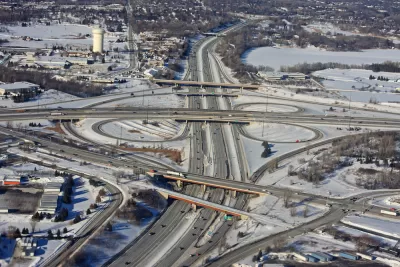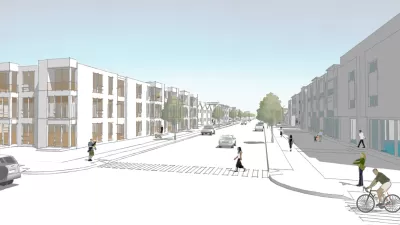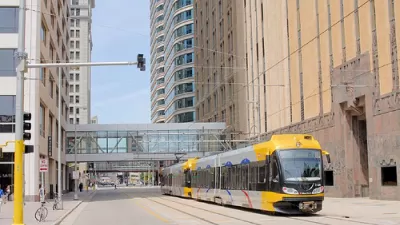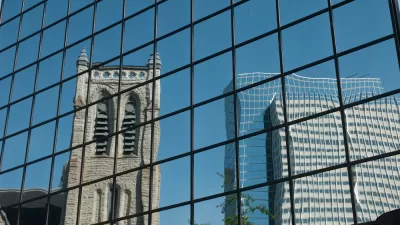Environmentalists have used the power of the legal system to protect the car-centric status quo of single-family zoning once again, overturning a landmark planning innovation in Minneapolis.

Environmentalists have used the power of the legal system to protect the car-centric status quo of single-family zoning once again.
A Hennepin County judge halted implementation of the Minneapolis 2040 Comprehensive Plan on June 15, according to an article published by Minnesota Public Radio.
The ruling by Judge Joseph Klein “made it clear the city had failed to address the environmental concerns raised by groups in court,” according to the article. “The city's expert, he wrote, failed to ‘specifically address, or purport to rebut to any degree of specificity, the many detailed assertions advanced by plaintiffs’ such as the effects of increased traffic and noise, loss of green space, effects on air and water quality, and stress on existing infrastructure,” according to the article.
The Minneapolis 2040 Comprehensive Plan famously was the one of the first citywide plans to entirely prohibit single-family zoning—for largely environmental reasons due to the emissions and land consumption effects of sprawling development resulting from exclusionary zoning. Protecting single-family zoning under the cover of environmental concerns is a familiar narrative around the country. The same judge tossed an environmental lawsuit against the plan in 2040, clearing the way for final adoption.
One of the groups behind the lawsuit, Smart Growth Minneapolis, would seem to misapply the smart growth term as it is commonly used to advocate for planning reforms that promote urban infill and mixed use density to enable fewer vehicle trips and alternative modes of transportation.
FULL STORY: Judge halts Minneapolis 2040 zoning plan amid environmental questions

Study: Maui’s Plan to Convert Vacation Rentals to Long-Term Housing Could Cause Nearly $1 Billion Economic Loss
The plan would reduce visitor accommodation by 25,% resulting in 1,900 jobs lost.

North Texas Transit Leaders Tout Benefits of TOD for Growing Region
At a summit focused on transit-oriented development, policymakers discussed how North Texas’ expanded light rail system can serve as a tool for economic growth.

Why Should We Subsidize Public Transportation?
Many public transit agencies face financial stress due to rising costs, declining fare revenue, and declining subsidies. Transit advocates must provide a strong business case for increasing public transit funding.

How to Make US Trains Faster
Changes to boarding platforms and a switch to electric trains could improve U.S. passenger rail service without the added cost of high-speed rail.

Columbia’s Revitalized ‘Loop’ Is a Hub for Local Entrepreneurs
A focus on small businesses is helping a commercial corridor in Columbia, Missouri thrive.

Invasive Insect Threatens Minnesota’s Ash Forests
The Emerald Ash Borer is a rapidly spreading invasive pest threatening Minnesota’s ash trees, and homeowners are encouraged to plant diverse replacement species, avoid moving ash firewood, and monitor for signs of infestation.
Urban Design for Planners 1: Software Tools
This six-course series explores essential urban design concepts using open source software and equips planners with the tools they need to participate fully in the urban design process.
Planning for Universal Design
Learn the tools for implementing Universal Design in planning regulations.
Ascent Environmental
Borough of Carlisle
Institute for Housing and Urban Development Studies (IHS)
City of Grandview
Harvard GSD Executive Education
Toledo-Lucas County Plan Commissions
Salt Lake City
NYU Wagner Graduate School of Public Service





























